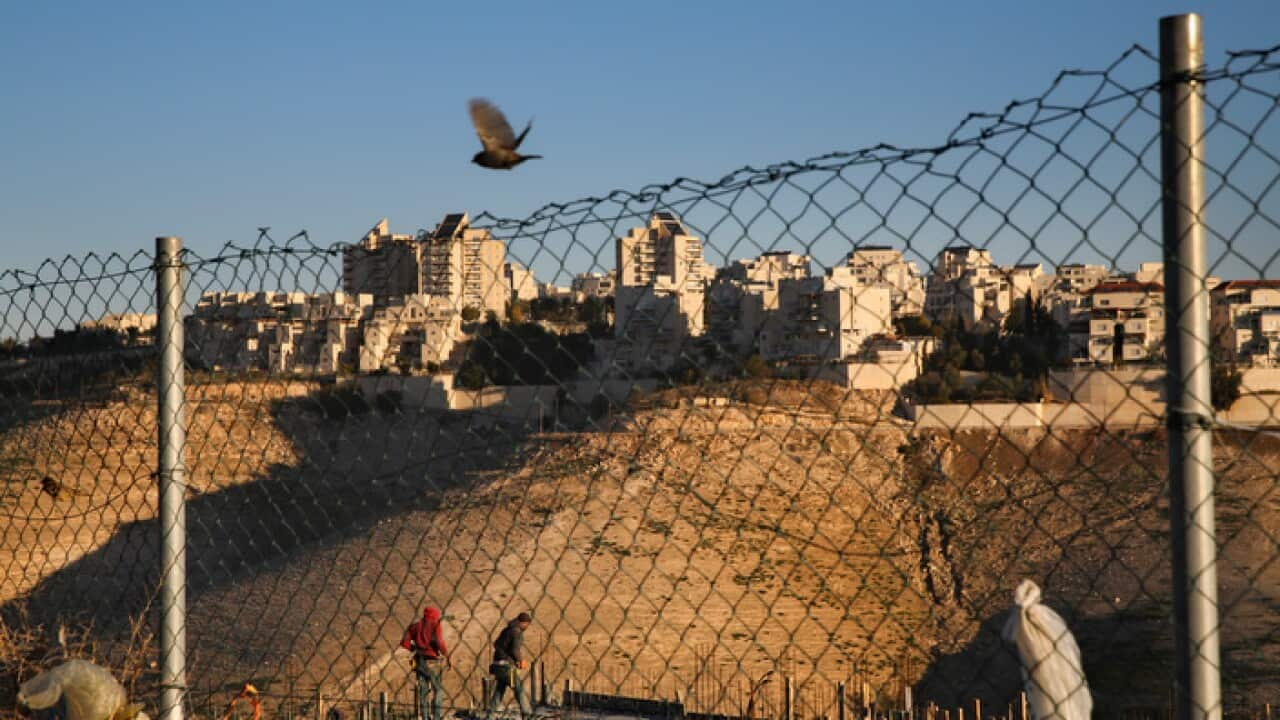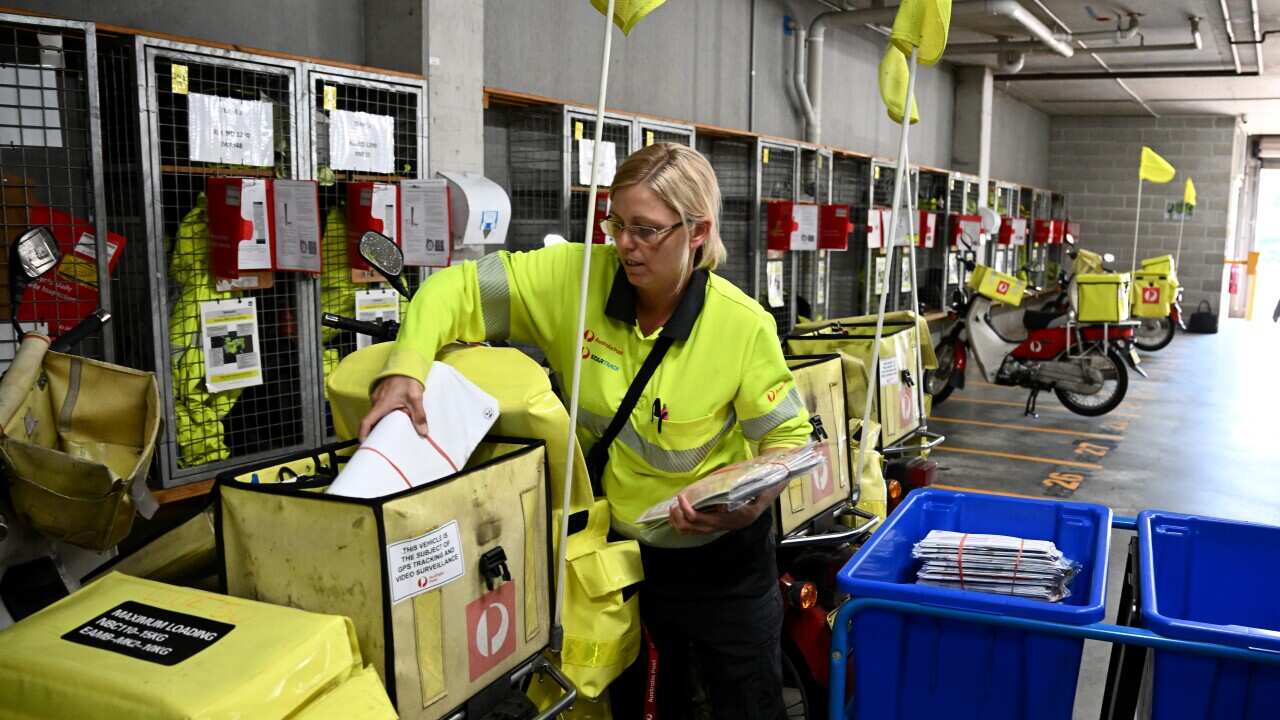Australia is sticking with its longstanding support for a two-state solution for Israel and Palestine despite US President Donald Trump's apparent retreat from the policy.
Foreign Minister Julie Bishop says the government's position has been consistent on a two-state solution.
"We encourage both Israel and the Palestinian Authority to negotiate an outcome that would see Israelis and Palestinians living side by side, within internationally recognised borders, in a peaceful and stable environment," she said in a statement to AAP on Thursday.
Prime Minister Malcolm Turnbull also said the government's position had not changed on supporting a two-state solution.
"That will best secure the interests and security of both peoples," Mr Turnbull told Sky New Business on Thursday night.
Foreign Minister Julie Bishop said Australia encouraged both Israel and the Palestinian Authority to negotiate an outcome that would see Israelis and Palestinians living side by side, within internationally recognised borders, in a peaceful and stable environment.
Mr Trump dumped America's long-running support for the establishment of separate states for Israel and Palestinians after he met Israeli Prime Minister Benjamin Netanyahu in Washington DC on Wednesday.
"I'm looking at two states and one state and I like the one that both parties like," Mr Trump said.
"I can live with either one. I'm happy with the one they like best."
Mr Trump's comments and Israel's recent controversial push to expand Jewish settlements on land it occupies in the West Bank and East Jerusalem are likely to feature in talks Prime Minister Malcolm Turnbull holds with Mr Netanyahu when the Israeli leader visits Sydney next week.
Mr Netanyahu said Palestinian recognition of the Jewish state was essential if a peace deal was to be reached.
"Second, in any peace agreement, Israel must retain the overriding security control over the entire area west of the Jordan River," he said.
"Because otherwise we'll get another radical Islamic terrorist state in the Palestinian areas exploding the peace, exploding the Middle East."
Australia, like the US, Europe, Russia and Arab League, has backed the creation of a Palestinian state within the West Bank, East Jerusalem and the Gaza Strip based on ceasefire lines drawn before the 1967 war with Israel.
But doubts have emerged about the likelihood of an independent Palestinian state following Israel's expansion of Jewish settlements.
Mr Trump has urged Mr Netanyahu to "pull back on settlements for a little bit".
Senior ALP figures including former prime minister Bob Hawke and former foreign ministers Bob Carr and Gareth Evans have publicly expressed fears the settlements could lead to the creation of an apartheid state with a Jewish minority ruling a Muslim majority.
They want Labor and the federal government to join more than 130 other countries in giving diplomatic recognition to the state of Palestine.
Opposition foreign affairs spokeswoman Penny Wong told ABC TV on Thursday a future Labor government would hold talks with other countries that had recognised Palestine including Malaysia, Russia and India.
"People do want peace and we should continue to advocate for the outcome, the only outcome that is capable of delivering peace and security," Senator Wong said.
She said while the ALP remained committed to the two-state solution, it believed the Israeli settlements were "unhelpful to the peace process".











